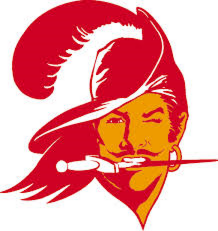(This is the same guy who was vaping in a committee session to make a point that it should be allowed on commercial airline flights)

Where does the GOP come up with these winners?
http://www.sandiegouniontribune.com/new ... nts-module
Hunter's campaign spent on groceries, gas
Expenses including Disneyland and Jack and the Box are not typical of congressional colleagues
Rep. Duncan Hunter, R-Alpine, has already reimbursed his campaign account for $12,000 of expenses he identified as personal or mistaken, including video games, oral surgery, private school tuition, a garage door and unspecified items at a Coronado surf shop.
That may not be the end of it.
An ongoing review by The San Diego Union-Tribune shows thousands of dollars of expenses such as groceries and gas fill-ups that could well be legitimate campaign expenses — but also have a lot in common with the expenses of a typical suburban family.
Unlike with the earlier expenses, Hunter’s office has declined to explain or justify any of the costs publicly, so it’s hard to know the true nature of the spending. The campaign has a deadline of this coming Monday to respond to the Federal Election Commission’s initial inquiry about video game and school tuition expenses.
Hunter’s office put out a statement for this story emphasizing that the campaign fund was supervised by his treasurer and his wife, Margaret, who is also his campaign manager.
“Even though Rep. Hunter wasn't authorizing charges, he's proactively addressing expenditure issues in 2015 that came to his attention and he's already begun taking corrective action in consultation with the FEC,” Chief of Staff Joe Kasper said. “He's also undertaking an independent audit for expenditures in 2015 and will act on the recommendations.”
The latest U-T review covered expenses from January 2015 through March of this year of campaign money, much of which comes from defense contractors and other political contributors.
The review found a series of costs that are not typical of the campaign reports of Hunter’s colleagues in the San Diego congressional delegation.
There were 106 fill-ups at gas stations, totaling $5,660. There were 16 trips to Jack in the Box totaling $297.
No other member of the delegation showed any disbursement to a gas station or a fast-food joint.
Forty times, Hunter’s campaign made a trip to Albertson’s, Trader Joe’s or another grocery store, spending $6,819 total. The only other local member who spent campaign money at grocery stores was Susan Davis, D-San Diego, who made seven disbursements totaling $675.
The campaign also spent money at Disneyland — $229 at the Star Trader gift shop in Tomorrowland for “food/beverages.” A spokesman for the park told the Union-Tribune the only edible items the store sells are Pez candy and a Star Wars-themed Rice Krispy treat.
Perhaps the most troublesome payments were for utilities — $1,269 for San Diego Gas & Electric and $300 to the Padre Dam Municipal Water District. Hunter runs his campaign out of his Alpine home, and members of Congress are not supposed to pay utility bills for their residence, even if part of it is used for campaign purposes.
Hunter has already voluntarily repaid $12,000 of questionable campaign spending identified by the FEC, the Union-Tribune and his own review.
Given the unusually large number of such expenditures Hunter has already acknowledged, any spending that’s out of step with his congressional colleagues should be examined as a matter of due diligence, said Meredith McGehee, policy director for the Campaign Legal Center, a nonpartisan, nonprofit political watchdog group based in Washington D.C.
“Anytime you have someone who’s an outlier — because we know the campaign finance laws are a de facto honor system — it kind of begs the question,” McGehee said. “Particularly if you have an outlier who already has some issues. It’s not an indictment, it’s saying, ‘You should be able to explain it.’”
Some kinds of expenses of campaign money are clearly prohibited, and others fall into a gray area.
According to the Campaign Guide for Congressional Candidates on the Federal Election Commission’s website, a campaign “may not pay for mortgage, rent or utilities for the personal residence of the candidate or the candidate’s family, even if part of the residence is being used by the campaign.”
The Code of Federal Regulations automatically also considers other types of campaign expenditures an improper personal use. They include household food items or supplies, tuition payments that are not related to campaign staff training and vacation.
The code also lists some expenditures that aren’t clearly personal use but might be. It leaves it up to the FEC to “determine, on a case-by-case basis, whether other uses of funds in a campaign account fulfill a commitment, obligation or expense that would exist irrespective of the candidate's campaign or duties as a federal officeholder, and therefore are personal use.”
Among those case-by-case types of expenditures are travel costs, meal expenses and vehicle maintenance (such as Hunter’s $95 expense at Jiffy Lube).
If there is personal use commingled with campaign expenditures — for example a personal stop on a campaign trip — the personal portion must be repaid to the campaign within 30 days.
According to the FEC’s campaign guide, campaign funds may be used “to pay for meals during face-to-face fundraising events. By contrast, a candidate may not use campaign funds to take his or her family out to dinner.”
Some of Hunter’s food and beverage expenses have already come under scrutiny. Regarding a campaign-funded trip to Italy in November, the group Citizens for Responsibility and Ethics in Washington noticed a $216 “food/beverages” expense at a jewelry store. The store told the Union-Tribune it sells no food or drink.
Hunter’s campaign did not directly answer questions about the purchase, but provided a statement that suggested it had been mistakenly reported as food and drink, when it fact was for donor recognition or charity. The expenditure was not marked as “mistaken” in the campaign’s reports, and was not reimbursed.
Larry Noble, general counsel for the public interest group Campaign Legal Center, said Wednesday that patterns of repeated, similar mistakes are not common in campaign reports.
“If it was one mistake, let’s say paying for the (video) games, you might say, ‘OK, we’ll give him the benefit of the doubt on that one,’ but when you see a pattern, that’s harder to do,” Noble said.
The FEC filed a lawsuit last year in federal court against Christine O’Donnell, a 2010 candidate for Senate in Delaware. O’Donnell allegedly used at least $20,000 in campaign funds to pay for utilities and rent at a townhouse where she lived and headquartered her campaign. The lawsuit was ongoing as of April 25, according to the FEC’s website.
According to the FEC’s complaint, “The use of campaign funds for rent or utility payments for any part of a federal candidate’s personal residence constitutes unlawful personal use.”
Donors to Hunter’s campaign said this week that they continue to fully support him and were not troubled by the spending.
“I’m not concerned in the least,” said Escondido resident Ronald B. Kollmansberger, who donated $200 to Hunter’s campaign March 31. “I know Duncan very well. He’s honest, hard working, and I think it’s honest clerical errors. There isn’t any question in my mind that Duncan is an honest, dedicated public servant, and that this is a clerical, administrative error that will be corrected quickly.”
Another donor, Ruth E. Lincoln, of Alpine, shared a similar sentiment. She donated $250 to Hunter’s campaign Jan. 29.
“I’m very confident in Duncan Hunter,” Lincoln said.












